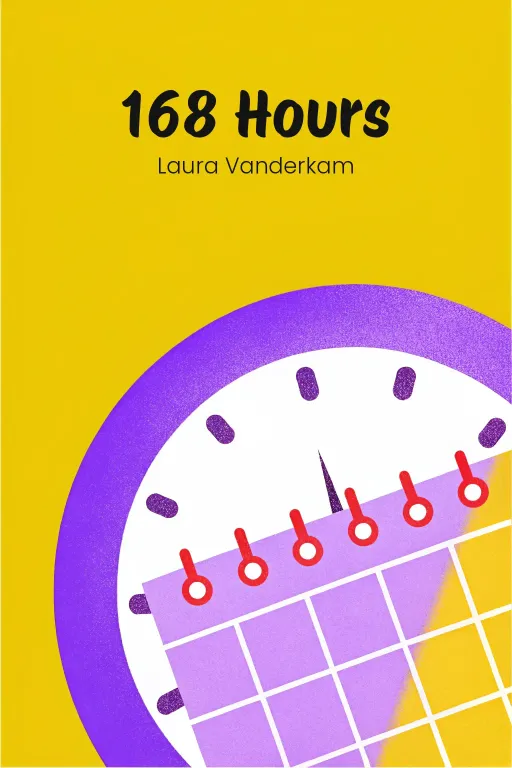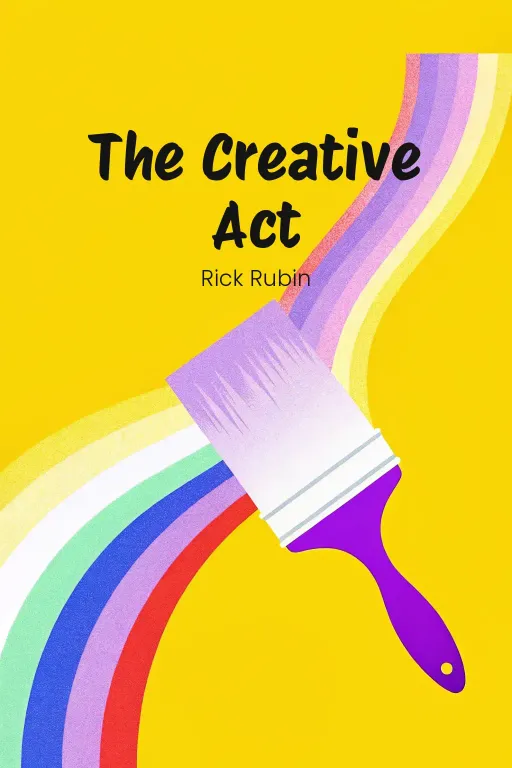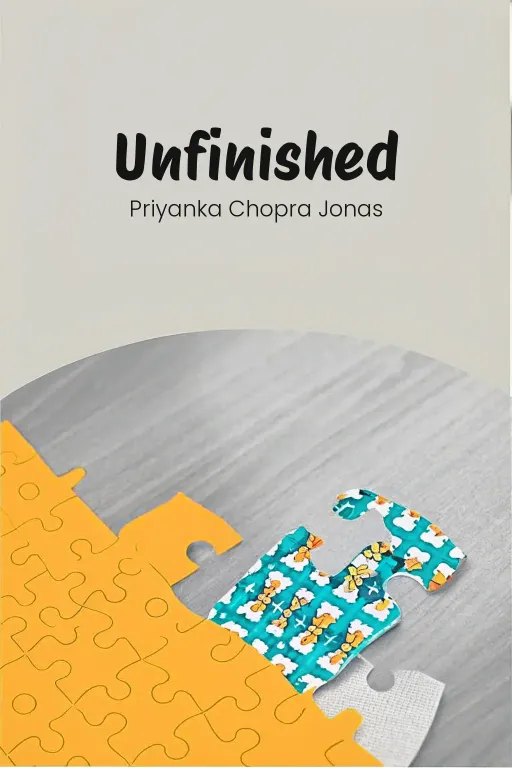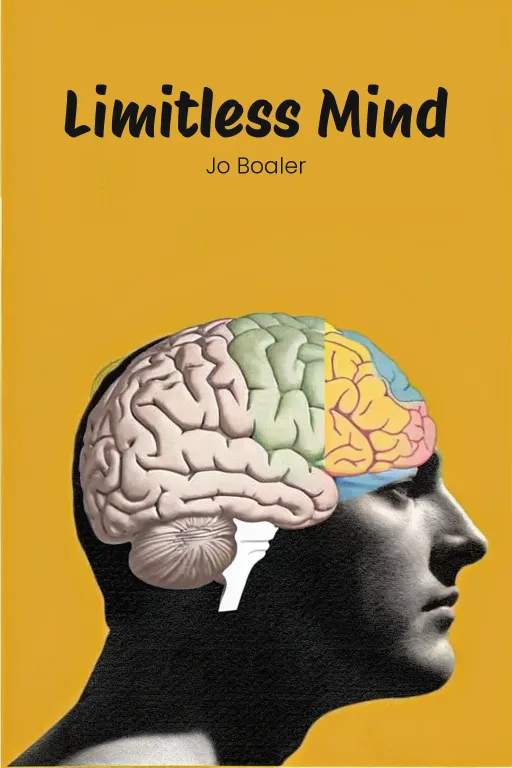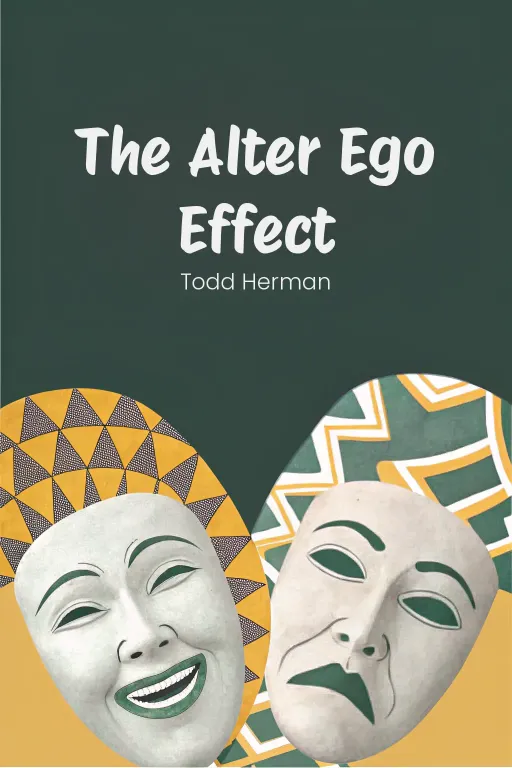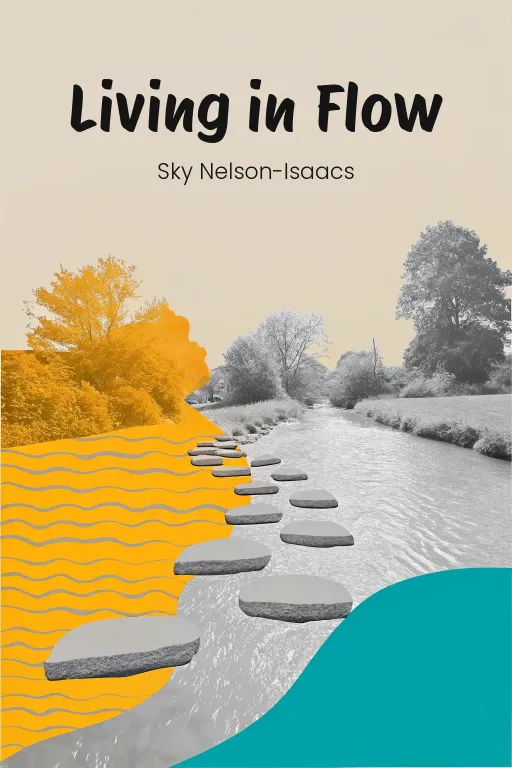
Stop Avoiding Growth: Rise Stronger Now!
Podcast by Beta You with Alex and Michelle
Everybody falls, but the key is knowing how to get up again
Stop Avoiding Growth: Rise Stronger Now!
Part 1
Alex: Hey everyone, welcome back! Today we're tackling something really fascinating: what if the moments we dread—those failures, those awkward, uncomfortable situations—are actually the most valuable for our growth? Michelle: Whoa, hold on. You're saying instead of avoiding screw-ups and embarrassing moments, we should... seek them out? Sounds a bit like masochism, doesn't it? Alex: Not exactly "seek them out," but see them as opportunities. Brené Brown's "Rising Strong" is all about this—how to deal with vulnerability, not as a weakness, but as the foundation for resilience, courage, and being truly ourselves. She gives us a practical framework – a three-step process – for working through those tough times. Michelle: A "three-step process"? Okay, I'm skeptical. That sounds suspiciously neat and tidy for something as messy as dealing with, you know, utter failure. Alex: But that’s why it's great! First, The Reckoning: acknowledging and understanding your emotions. Then, The Rumble: challenging the stories we tell ourselves about those emotions. Finally, The Revolution: rewriting those narratives and creating lasting transformation. Michelle: So, it's like a boot camp for emotional resilience with a heavy dose of self-reflection. But where does this "storytelling" bit come in? Alex: That’s where the real power lies. When we own our stories, we can connect with others, heal from within, and grow, both individually and in our relationships. We’re going to explore how vulnerability builds courage, unpack the Rising Strong process, and see how storytelling can rebuild trust and authenticity in our lives, both personally and professionally. Michelle: Alright, you've piqued my interest. Let's see if this roadmap actually leads to something real.
The Physics of Vulnerability
Part 2
Alex: So, about roadmaps, Brené Brown starts with something she calls “The Physics of Vulnerability.” It’s all about shifting your perspective on vulnerability, seeing it not as a weakness, but as the foundation for growth, resilience, and real connection. And this is key to understanding Rising Strong – it's the groundwork that helps us navigate The Reckoning, The Rumble, and ultimately The Revolution. Ready to dive in, Michelle? Michelle: "The Physics of Vulnerability," huh? Sounds a bit like quantum emotions! But, yeah, I like this idea of reframing vulnerability. It’s definitely a newer take. But how does she convince us that showing vulnerability isn't just setting ourselves up for a fall? Alex: Good point! Brené defines vulnerability as emotional exposure – taking risks like admitting mistakes, sharing failures, or pitching ideas even when you’re anticipating rejection. She directly links it to courage, arguing you can’t really have one without the other. Think about someone giving a presentation on a new idea at work even though they know it might not land. That's courage, right? Michelle: Okay, I get the connection between vulnerability and courage. But why is it so hard for people to be emotionally exposed? I mean, who actually enjoys feeling that uncomfortable? Alex: Exactly! And she explains how society teaches us to avoid vulnerability, to see it as a sign of weakness. But – here's the thing – it’s often in those uncomfortable moments of openness that we discover our real strengths. Take someone who's lost their job. Instead of just shaking it off, she says they need to really process the grief, to understand what values may have been challenged, and then find a path toward something more aligned with their passions. That kind of reflective pain? That's where the courage to try again comes from. Michelle: Got it. So vulnerability isn’t just about, you know, word-vomiting your feelings at the next meeting – there's a level of introspection involved. But you mentioned inevitability. What happens when vulnerability leads to failure? What does she say about picking up the pieces? Alex: That's where the "falling" metaphor comes in. She is very clear that failure isn't just a possibility; it's pretty much guaranteed at some point. The real question is: how do you react when you fall? She talks about a creative director named Andrew, whose big client pitch bombed because the financials weren't solid. His first reaction could have been denial or blame, right? The usual avoidance tactics? Michelle: Yeah, "It wasn't my fault," or "The client just didn't get it; they weren’t smart enough." Alex: Right! But instead, Andrew faced the discomfort head-on. He allowed himself to feel the disappointment and took the time to write what Brené calls an “SFD,” or a “Shitty First Draft” - Basically, the raw, uncensored story he was telling himself in that moment. His initial thought? "I failed my team," "I'm not good enough," "It's all on me." But digging deeper, he realized that the failure wasn't only his – it was a bigger systemic issue. So, that openness actually created space for his team to regroup, and it ended up strengthening their trust. Michelle: That's a cool twist. The SFD sounds like a good way to declutter your brain – getting rid of the dramatic inner dialogues we usually try to suppress. But isn’t there a risk of vulnerability backfiring? What if Andrew's team wasn't receptive to his honesty? Alex: Brené addresses that, too. She says it's about being selective with your vulnerability. Sharing your struggles or emotions isn't about just broadcasting everything to everyone. It’s about choosing the right relationships and contexts where that kind of openness will be met with empathy and accountability. Andrew's team already had a foundation of trust, so his vulnerability deepened that connection, not undermined it. Michelle: So, vulnerability isn’t about turning every water cooler conversation into therapy sessions. It’s about picking the moments – like strengthening bonds in high-pressure situations or in relationships that really matter. But does she talk about this outside of work? How does it apply to your personal life? Alex: Absolutely! Brené talks about how it’s really unifying, especially when you’re in grief. Sharing sadness openly after a loss can help you process the pain and it also creates deeper connections with other people who are experiencing the loss. Think about a parent talking openly with their child after the death of a loved one. A lot of people might think shielding those emotions is “strong," but Brené argues that this kind of openness teaches kids that embracing vulnerability is human, which strengthens the bond between them. Michelle: Okay, I see how it can unify. But, just playing devil's advocate here, if you're too vulnerable, isn’t there a risk of being perceived as... well, weak? Especially if you’re the boss? Alex: Right. That's why she reframes vulnerability as a strength. It’s fearlessly stepping into situations or conversations where your instinct is to put up emotional walls. It could be admitting a mistake at work, apologizing in a strained relationship, or even just saying, "I need help." Those are acts of courage, not weakness. Michelle: Okay, I like the way she’s reframing this. But how does someone actually become more comfortable with vulnerability? If you've spent your whole life avoiding emotional risks, where do you even start? Alex: Great question! Brené has a few tools. First, acknowledge your emotions - ask, "What am I really feeling, and why?" This disrupts the pattern of just suppressing uncomfortable feelings. Next, there’s curiosity – leaning into those tough emotions like fear or shame and asking, "What's underneath this?" And, of course, she says you need to share your experiences with someone you trust, someone who can offer a perspective without judgment. Michelle: Those sound simple, but powerful. You have to catch yourself in those avoidance patterns, right? Like realizing you’ve been binge-watching Netflix for ten hours to avoid a difficult conversation. Alex: Exactly – it's about recognizing those patterns and intentionally disrupting them. These tools make vulnerability less scary and more actionable. And as Brené says, practicing vulnerability brings clarity to your values, strengthens relationships, and builds resilience. When we stop seeing emotional exposure as a sign of failure, it opens the door to real growth. Michelle: That’s a solid foundation! Vulnerability as a strength, not a liability. Not about being reckless with your emotions. It’s about using them strategically to connect, grow, and lead. Alright, Alex, I think I'm finally ready for this Rising Strong roadmap you’ve been teasing. Where do we go from here?
The Rising Strong Process
Part 3
Alex: Right, so understanding vulnerability really sets the stage for this whole process of Rising Strong. It’s broken down into three key phases: The Reckoning, The Rumble, and The Revolution. It builds on that foundation of vulnerability by giving us a structured way to deal with our emotions and grow from them. So let's dive into The Reckoning. This is where it all kicks off, Michelle; it’s about recognizing, owning our feelings. Michelle: Recognizing emotions - sounds easy enough on paper. But come on, a lot of people either run from their feelings or just bury them with non-stop work or distractions. So why does Brené think this step is so important? Alex: Because acknowledging our emotions gives us clarity amidst the chaos, Michelle. Brené says we all have emotional reactions to things – frustration, fear, you name it. But the problem isn't the emotions themselves, it's when we don't process them. The Reckoning is about pausing, just long enough to notice what we're feeling and asking ourselves, "What's going on here? Why am I feeling this?" Michelle: So, it’s less about fighting those feelings and more about seeing them as… clues? Alex: Exactly! She gives this great example in the book about when she was swimming across a cove with her husband, Steve. So, she's exhausted, feeling exposed out there in the water, and her thoughts start to spiral. Suddenly, she's not just tired – she's convinced Steve doesn't care if she's safe. Michelle: Oh, wow, that classic overthinking spiral. So, her being tired kind of unlocks this deeper emotional narrative? Alex: Totally. In that moment, the story she’s telling herself is, "I'm not being protected. I'm not valued." And Steve, meanwhile, is in his own head, worrying about the kids’ safety. But instead of letting it consume her, Brené addresses her feelings as soon as she’s back on solid ground. She doesn’t just ignore them or start blaming him. She’s honest and starts a conversation. Michelle: That had to be awkward, right? Most of us would probably just clam up or pick a fight. Alex: Right, but she chooses to be vulnerable. By sharing what she experienced, she lets Steve explain things from his side, which, turns out, had nothing to do with her assumptions. That’s the power of The Reckoning – naming your emotions, trying to understand where they come from, and talking about them openly instead of bottling them up. Michelle: But here's the thing – what usually stops us from doing that? It's uncomfortable. Saying you feel unappreciated or scared isn't easy. How does Brené suggest we actually deal with our emotions without instinctively sweeping them under the rug? Alex: It starts with breaking those old habits. Brené suggests tools like “emotional naming” – literally labeling what you're feeling. Is it anger, sadness, fear? Or is it something more specific, like humiliation or disappointment? After you name it, then you look into the triggers – what event or thought sparked that feeling? And, finally, you've got to be brave enough to talk about it with someone you trust. Small steps, but they can really change things. Michelle: Okay, let's say you've done all that. You've reckoned with your emotions, figured out where they’re coming from. Then you hit this tricky phase she calls “The Rumble”. What does that look like? Alex: The Rumble is where the real work begins. It’s when you question those stories we tell ourselves. You know, those mental narratives we create when things go wrong. A lot of these stories are incomplete or false, skewed by fear or shame or whatever insecurity we might have. Michelle: You’re talking about those "shitty first drafts," right? That immediate, unfiltered reaction like, "This person doesn’t respect me," or "I’m a complete failure." Classic emotion-fueled storytelling. Alex: Exactly. Like in the book, there's Andrew. He’s a leader in an ad agency, and his team just lost a big client pitch because of budgeting errors. His SFD? “I failed my team. I’m incompetent. This is all my fault.” Michelle: Sounds like a classic case of self-blame. Let me guess – he went straight into guilt and shame before stepping into The Rumble? Alex: Pretty much. But instead of staying there, Andrew decides to dig deeper. He writes down his initial thoughts and then starts questioning them. Is it really all his fault? As he looks into it, he realizes the failure was a team-wide problem – being overly ambitious, communication breakdowns. And that allows him to be open with his team, admit his own mistakes, and get everyone to think critically about what went wrong and how they can fix it. Michelle: Okay, so The Rumble is like editing your inner monologue, swapping out the blame and shame for something more… accurate. But isn’t that easier said than done? Figuring out and rewriting those first drafts seems like you’d need a ton of self-awareness, right? Alex: You’re absolutely right – it isn’t easy! Brené gives us some real tools to use here, too. Writing an SFD is the first step – taking those raw thoughts and getting them out where you can see them. Then, you challenge those assumptions by asking questions like, "What are some other ways to look at this?" or "Am I judging someone unfairly?" And finally, you get other people's opinions. Andrew’s story reminds us that asking for feedback from people you trust can turn your narrative into something constructive. Michelle: I like that idea – inviting “multiple truths” into the story rather than sticking with the one that hurts the most. But this phase must take some serious courage to lean into discomfort. Alex: It does. And once you’ve worked through The Rumble, you’re ready for the final phase, “The Revolution”. This is when the change really happens. Unlike the first two phases, where it's about processing and understanding, The Revolution is about action. Michelle: Action? Now we’re getting somewhere. So how is this different from just saying, "Okay, I’ll do better next time?" Alex: It’s more than a one-time thing, Michelle. It’s about taking what you learned in The Reckoning and The Rumble and making it part of your daily life. Like, Brené talks about The Revolution as making an ongoing commitment to having more real and meaningful relationships. Look at her and Steve again: after their moment by the dock, they understood better how to talk to each other and respect each other’s feelings. Michelle: Okay, so they actually change something about how they interact? Alex: Totally! They create little rituals that show they’re committed to being transparent. They listen to their favorite song, “In Spite of Ourselves.” It’s a small gesture, but it’s a reminder of their promise to accept each other’s flaws and stay connected. Michelle: Okay, so the Revolution isn’t just about you changing as a person; it’s about showing that change in your closest relationships, in your community, even at work. Alex: Exactly. And what's great about this process is that it’s a cycle. Even when you face new challenges, what you learned in one Revolution helps you face the next Reckoning with more courage and understanding. Michelle: I gotta say, even though I was skeptical at first, this whole Rising Strong thing does offer a surprisingly structured way to deal with some pretty messy emotions. If nothing else, it's a plan for dealing with those times when life knocks you flat on your face. Alex: Absolutely, Michelle. It's about understanding that every fall, no matter how painful, has the potential for growth. Rise strong through vulnerability, and there’s no telling what you can achieve.
The Power of Storytelling and Emotional Exploration
Part 4
Alex: So, keeping the Rising Strong process in mind, we can now look at how storytelling and really digging into our emotions can help us understand vulnerability and resilience even better . This is a cool transition because it's not just about us as individuals anymore—dealing with our own internal stuff—but how we interact with others . How we share our stories and explore our feelings doesn't just help us grow; it actually creates more trust, connection, and healing in our relationships, at work, and even in our communities . Michelle: Okay, so we're going from fixing our own inner chaos to seeing how that impacts others . But hang on a sec, Alex . Brené talks a lot about storytelling—why is that so important ? I mean, isn't it just a fancy way of saying, “Talk about your life?" Alex: It's a bit more complex than that, Michelle . Storytelling, as Brené explains it, is about consciously owning and sharing your story in a way that helps build connection . It's not just listing facts; it's about exploring the emotional side of things . It's about being vulnerable—saying, "This is what I did . This is how it affected me . And this is how I'm moving forward"—which, by the way, is also a key part of the Rising Strong process . Michelle: Got it, so it's storytelling with a purpose, not just word-vomiting every detail of your existence, right ? This isn't about cornering someone with, “Let me tell you all my problems,” right? Alex: Exactly . Brené makes it super clear that having shared empathy and context is vital . Being vulnerable without boundaries isn't really authentic; it's just unloading on others . Storytelling, according to her, is about creating a safe space to think and connect with people who can be empathetic . And here’s the real kicker—it’s not just about personal growth but also about changing relationships . Take Alan, for example, the marketer . Michelle: Ah, here we go—a case study . I love these . What's the story? Alex: So, Alan's a marketing guy who, earlier on in his career, messed up a big campaign, and his company lost a major client . But instead of facing the consequences, he hid his shame and just moved on . For years, this failure bugged him, but he never really dealt with it . Then, years later, during a mentorship session, one of his mentees said they were afraid of making mistakes . Alan decided to share his story—the honest version, not the polished one . Michelle: So he ditched the highlight reel and showed them the blooper reel of his big professional failure, letting them see the messy parts? Alex: Exactly . And here's the cool part: the whole vibe of the room changed . When Alan talked openly about his failure and, even more importantly, what he learned from it, the younger team members started sharing their own struggles . Suddenly, it became a safe place for honest conversation and growth . His willingness to be vulnerable broke the ice, made communication better, and actually made the team more resilient . Michelle: Okay, that’s a big shift . Vulnerability led to trust, and trust led to innovation and connection . But I can already hear skeptics saying, “That’s great for a mentorship group, but what about tough situations, like competitive workspaces where showing any weakness is like career suicide?” Alex: That’s a great point . Brené would say that vulnerability isn’t about being reckless—it’s about knowing the difference . You don’t share your deepest fears during a high-stakes negotiation, but you also don’t try to act like you’re perfect . Knowing the right situation and building trust within teams is key . She even points out that leaders who show vulnerability—like admitting a mistake—create environments where people feel safe to be creative and take risks . Michelle: So it’s like Alan’s story, but on a bigger level . A leader saying, “Hey, I messed up here” could spread throughout the team and change the whole culture . But is storytelling always the best way to deal with this vulnerability ? Not everyone’s gonna share their deepest secrets at work or at a support group . Alex: That's where writing comes in—a way to get to know yourself on your own . Brené is a huge fan of writing what she calls a "Shitty First Draft," or SFD . Just writing down all your raw, unfiltered thoughts—no matter how chaotic—can be a first step toward dealing with your feelings . Let me tell you about Maria . Michelle: Alright, I'm listening . What's Maria's "messy first draft" look like? Alex: Maria had just gone through a really tough breakup—a relationship she was really invested in . Her first SFD was rough . It was basically a list of self-blame: "It's all my fault," "I wasn't good enough," "I'll never find love again" . Pretty dramatic, right ? But when she looked at it again later, she got curious . She started questioning those statements, asking things like, "Is that really true?" and "Where did that belief come from?" Michelle: So her first draft wasn’t just emotional venting—it was a window into insecurities she hadn’t faced yet. Alex: Exactly . As she worked through her feelings, Maria realized she had started to believe that her worth came from being perfect in relationships . It wasn’t about being good enough for her partner—it was about changing how she saw herself . Her second draft admitted the mistakes she made but also included self-compassion . She learned some lessons, like understanding her own boundaries and needs for the future . Michelle: That’s powerful . Writing allowed her to turn shame into acceptance and clarity . But this must take courage—it’s not easy to really sit down and write out what you’re avoiding emotionally . Alex: No, it's not . But the cool thing about writing an SFD is that it's a “safe space” where you can explore those raw emotions without being judged . It's like digging—digging into the messy truths so you can find clarity and resilience . And, as Brené says, curiosity is the key to opening the door to that kind of self-awareness . Michelle: Ah, curiosity again . So instead of running from the discomfort of "Why am I so upset?" you lean into it with questions . That’s easier said than done when you’re feeling defensive, though . Alex: True ! But curiosity isn't about having all the answers right away; it's about starting a conversation with yourself instead of shutting down . Brené says it's the cure for emotional numbing—we often avoid tough feelings because we're scared of what we'll find . But curiosity makes vulnerability feel like discovery, not danger . Michelle: And that brain science you mentioned earlier backs that up, right ? Curiosity activates those reward pathways, making even uncomfortable truths feel more manageable . Alex: Exactly . When you get curious, you stop seeing emotions like guilt or shame as roadblocks and start seeing them as chances to grow . And speaking of guilt and shame, let's not ignore the role storytelling plays in transforming those heavier emotions into something constructive .
Conclusion
Part 5
Alex: Okay, so let’s wrap up. In Rising Strong, Brené Brown gives us this “really” practical framework for dealing with vulnerability and building resilience. It's all about those three phases: Reckoning, Rumble, and Revolution. We've seen how embracing vulnerability—seeing it as a strength, not a weakness—is key to personal growth, real connections, and authentic living. Michelle: Right, and the whole storytelling piece is huge, isn't it? Whether it's getting those initial messy thoughts out in a “Shitty First Draft,” or owning your story with others, Brené shows us how being curious and self-aware can “really” break down shame and build empathy. I mean, think about the payoff: stronger teams, better relationships, and a clearer sense of who we are. Alex: Exactly! And that's what hits home for me is that this isn’t about being perfect. It’s a brave, sometimes messy, commitment to showing up and staying open. Michelle: Okay, so to turn this inward, what's one story you're still carrying around that feels unresolved? How do we start unpacking it? How would you challenge those SFDs and start writing something more empowering, something more… true? Alex: Definitely. And it’s worth remembering that vulnerability isn’t just about what we might lose; it’s also about what we gain: clarity, connection, and a whole lot of courage. Michelle: So, a challenge for anyone listening: start with curiosity. Pick one feeling you tend to avoid, dig into the story behind it, and see if you can flip it into a lesson. Maybe even spark a revolution in how you relate to yourself and others. Alex: That’s “really” the essence of Rising Strong, isn’t it, Michelle? Falling, getting back up, and seeing the world—and yourself—with fresh eyes. So, keep rumbling, everyone. Michelle: And keep rising strong. Until next time!




